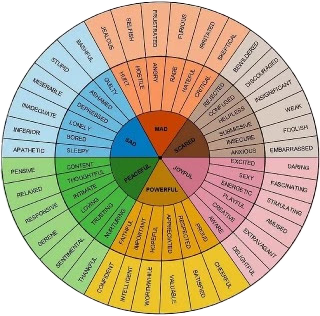Years ago the parent of my son’s BFF, who happened to be a teacher, turned to me suggesting my son had ADD. Hmmm, I thought, not sure about that AND I was rather put off that she decided in all helpfulness to diagnose him. The idea that my son was given a label that is more often than not clouded with negativity was uncomfortable for me as a parent. Who wants their child labelled?
In education, ADHD is perceived as one of the biggest obstacles to learning. It is assumed that with the diagnosis your child will be distracted, unable to process information as easily, might not be able to sit still and worse yet, might even become a behaviour problem. For teachers herding 25-30 chickens through a structured setting, 5-6 hours a day, the last thing they want to hear is that there is yet another child in their room struggling with attention and compliance.
How is ADHD defined? Take a look at this Centres for Disease Control link.


As a teacher, there were times it was exceptionally disturbing to see children medicated for ADHD in my room. Sometimes the presiding Dr.’s prescription for drug therapy would leave the students devoid of energy and in some cases almost like zombies. Would they be quiet, more cooperative and less of an overall disruption to the rest of the class? Yes, I questioned at what cost?
In addition, there were the parents who chose medication for their children and it was an incredible success story. A friend of mine, when seeing her grade one son greatly struggling with learning tasks as well as cooperative behaviour, immediately sought help from her doctor. The appropriate dosage of meds was prescribed. He was tested and it was determined he was gifted and, as such, modifications were made and he was placed in a full-time gifted class. Also, it must be noted that this parent worked hard at coaching her son through methods of self-control and effective choices. Today he is thriving in university!
On the other hand, there were parents not in favour of meds. Through behaviour modification and accommodations, we were able to cope quite well. The students were able to work on harnessing their impulses and I worked at celebrating their strengths. Focusing on programming to their strengths combined with patience, structure and scaffolding of activities, the students were able to learn new coping skills. It was a joy to see them make effective choices and gain confidence.
The first moral of the ADHD blog: is there a right answer when it comes to meds? No. Above all I believe that parents need to listen to their own intuition. As I used to say to parents, “You know your child best, do not get bullied/intimidated by a person with professional designations that have only met your child briefly or only on paper.”
The second moral: I’ve seen wonders work with cognitive behaviour therapy. If the adults celebrate and are flexible in accommodating a child’s strengths, with patience and persistence, the child will learn to embrace their strengths, work on controlling their impulses and gain confidence.
The third moral: Appropriately prescribed medication is an option and coupled with programming modification and strength-focused behaviour therapy, ADHD is not a hindrance.
Remember, we are the adults with the power, consequently, we have choices. We can choose to strictly adhere to our agendas (lesson plans) or we can slow down and differentiate by accommodating and modifying our teaching styles, programming and agendas. Our children are learning skills on how to cope with their God-given gifts and challenges. Let’s approach the facilitating of learning and coaching with grace.


Quick Take Away Links
Hmm, interesting headline:
- https://childmind.org/article/schools-driving-adhd-diagnoses/
- https://childmind.org/article/whats-adhd-and-whats-not-in-the-classroom/
- https://my.clevelandclinic.org/health/diseases/4784-attention-deficithyperactivity-disorder-adhd
- https://www.healthline.com/health/adhd/benefits-of-adhd#celebrities-with-adhd
Love this article from Forbes:
And this one from Entrepreneur :
More:
Parenting tips:
And if your child is diagnosed then you are likely to also be ADHD:
Now for those of you who are willing to embrace New Age Spirituality ( Is your child an indigo or crystal spirit?) take a look at this great article with clear strategies to help you child get grounded:
Or here is another:








[…] What are the Strengths of the ODD Child? Flip your Mindset, There are Positive Qualities! Prev Post […]